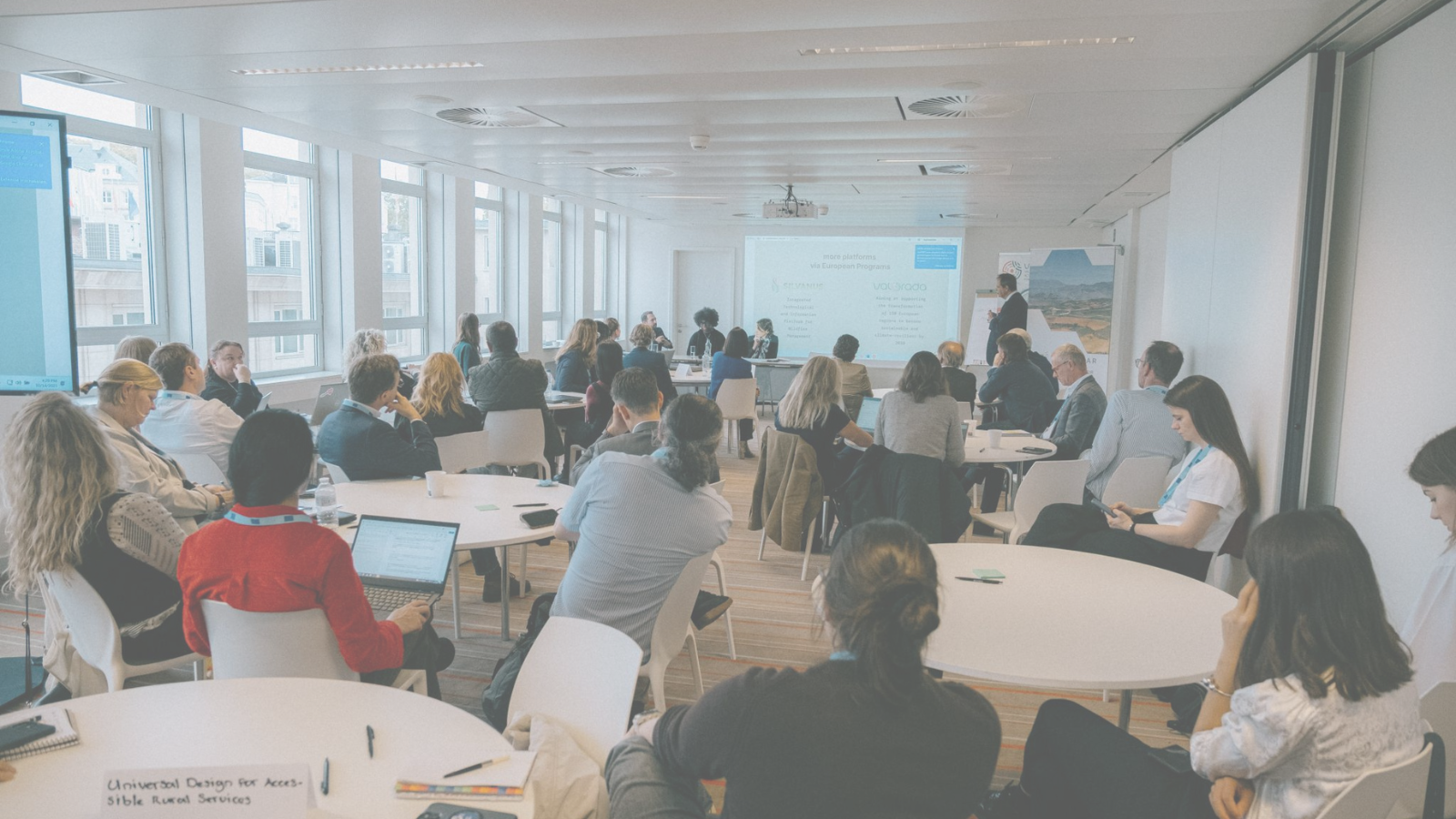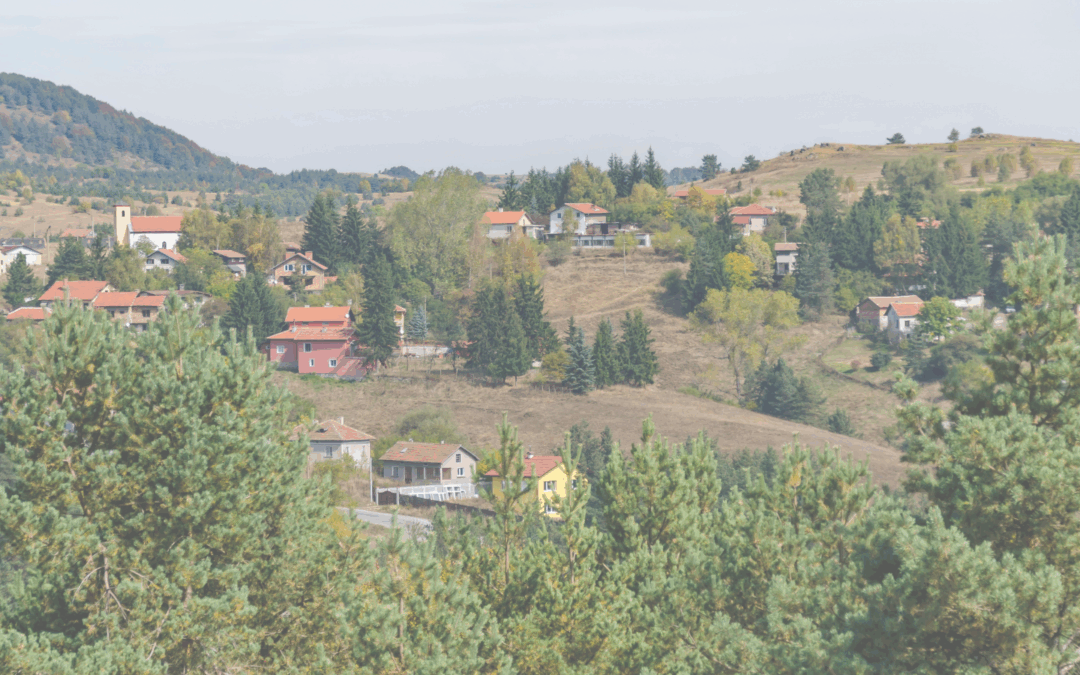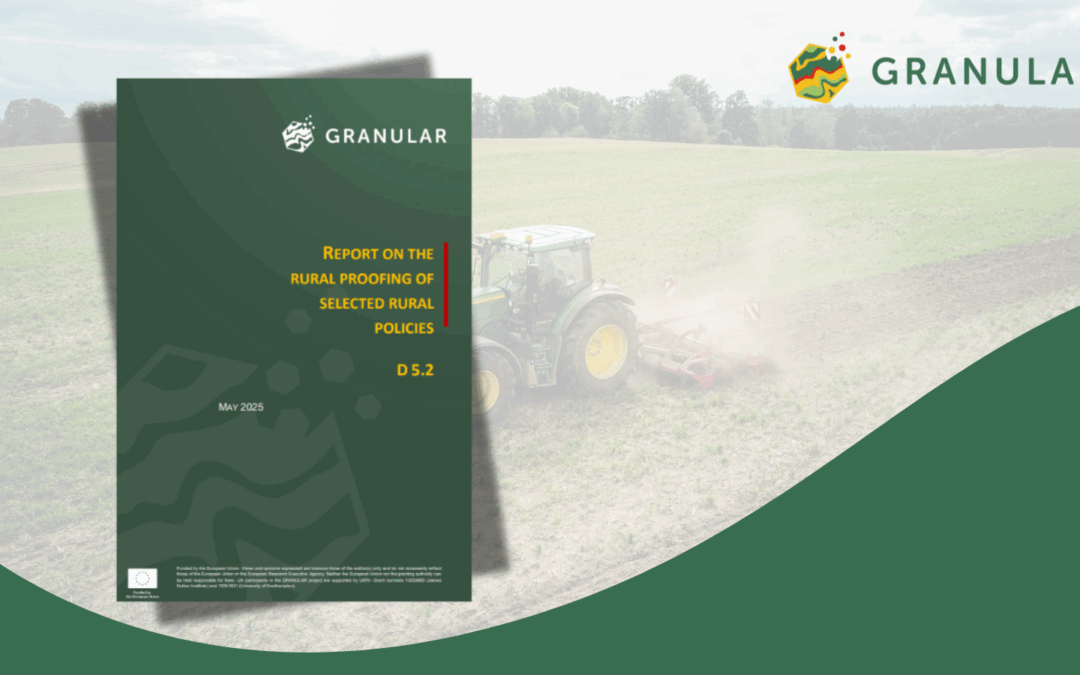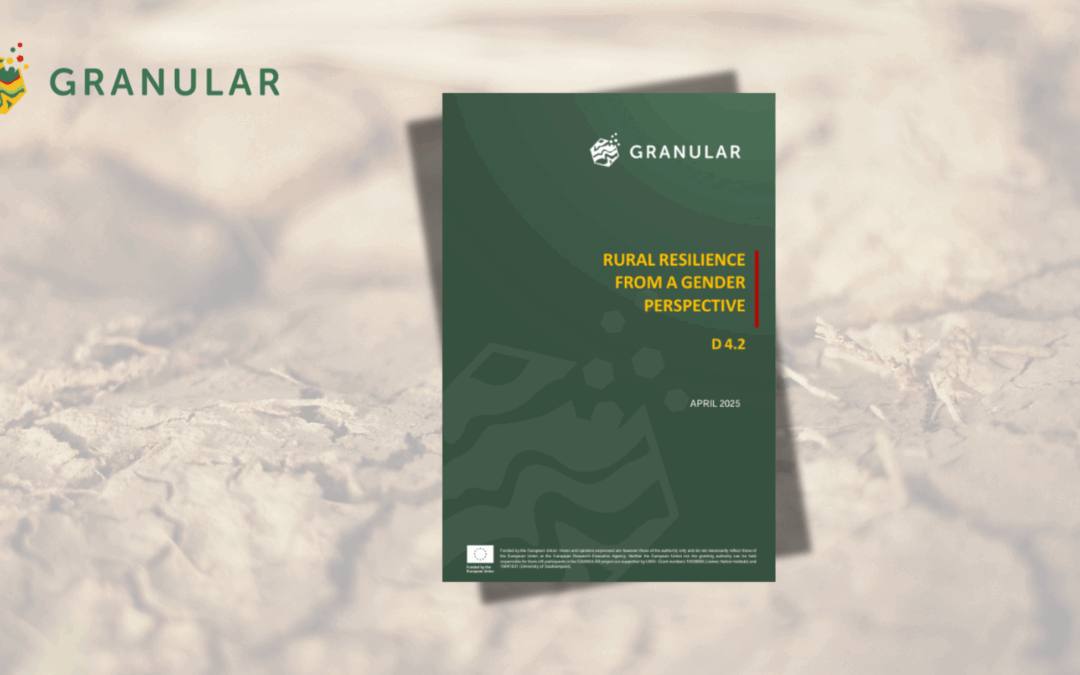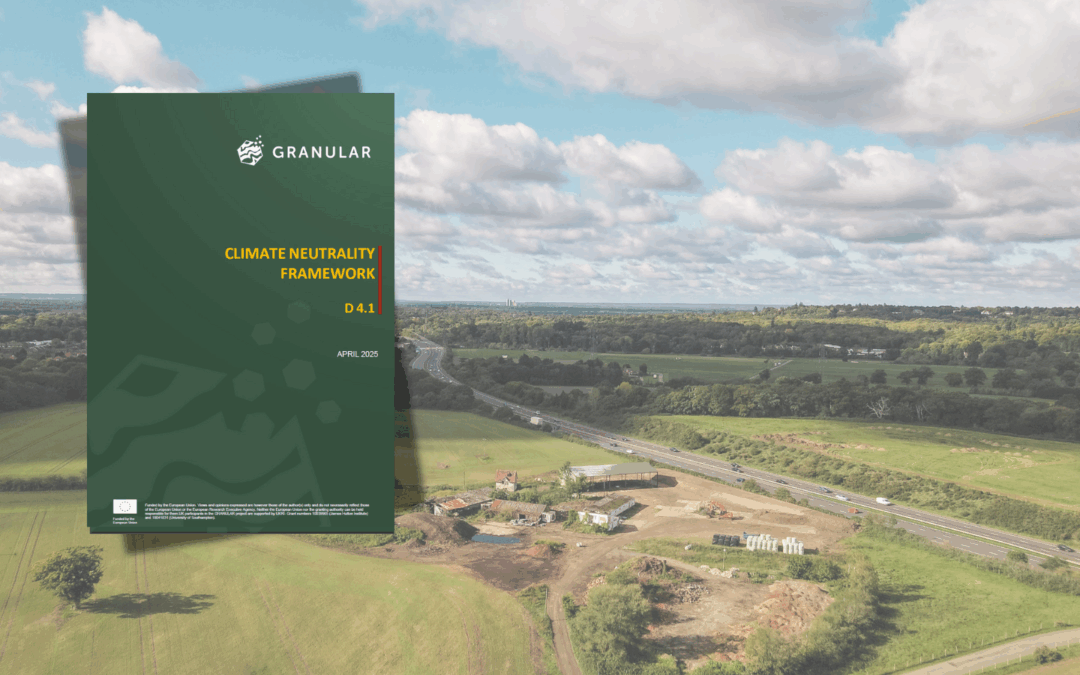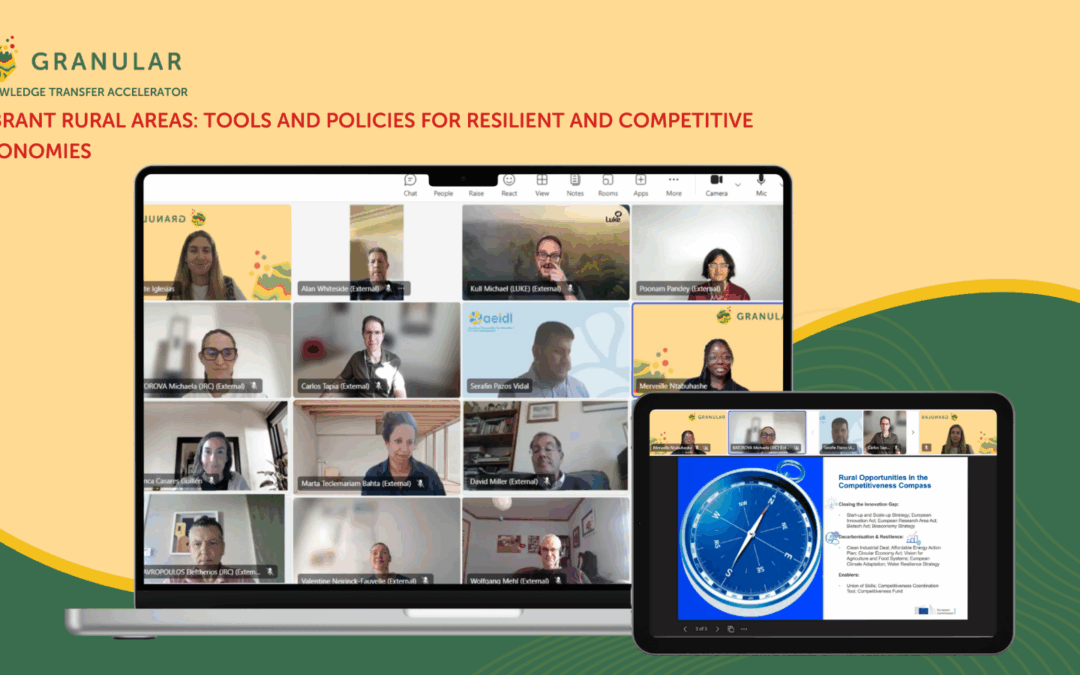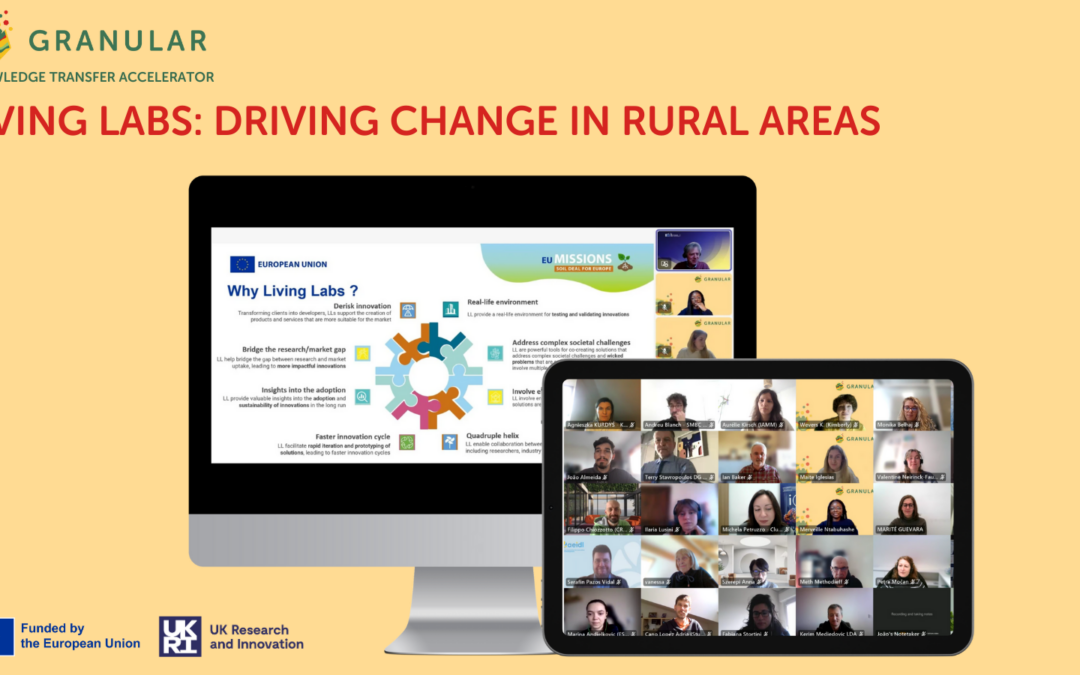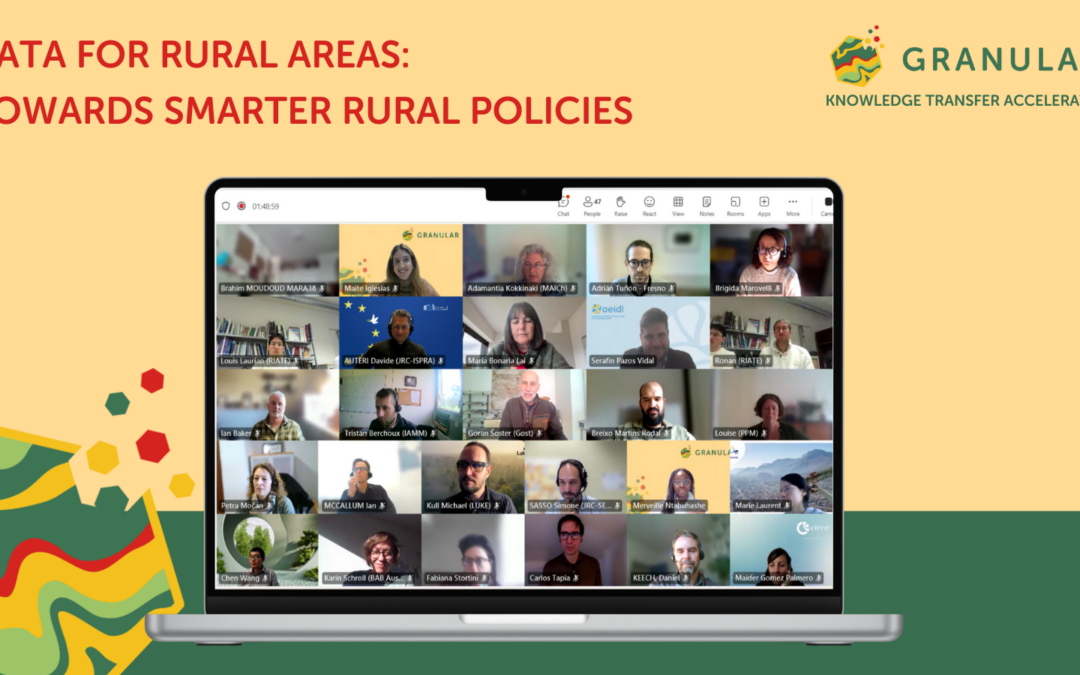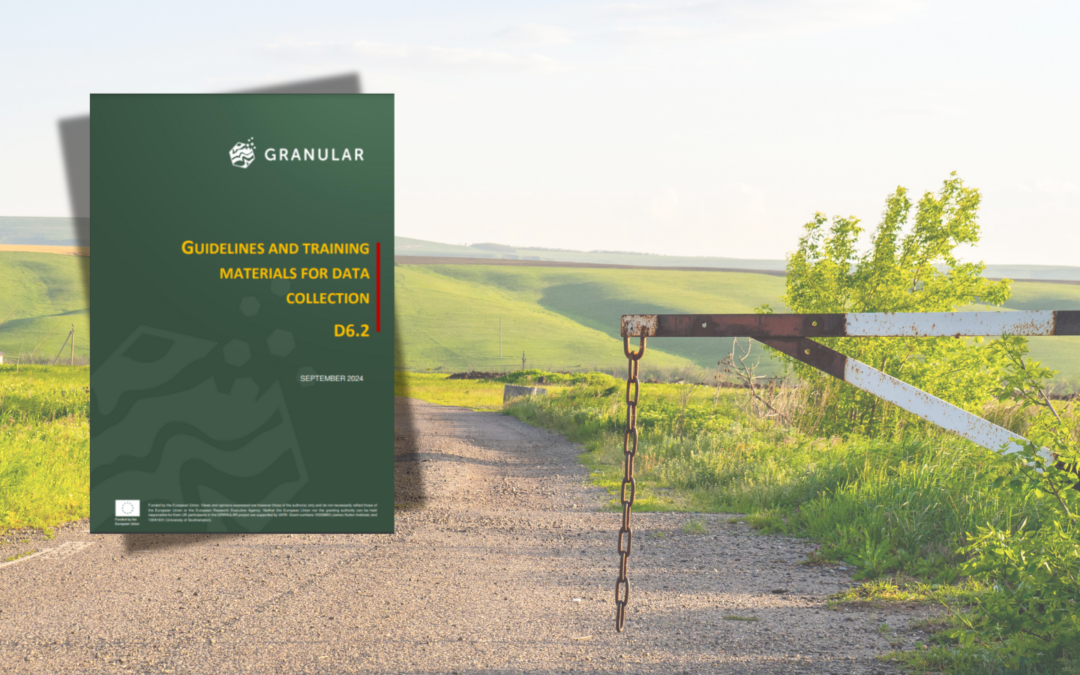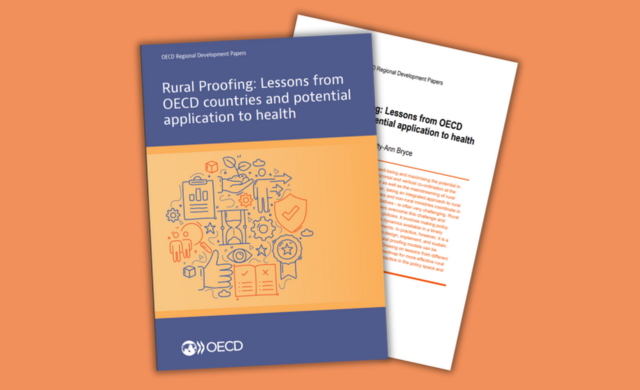Authors: Merveille Ntabuhashe & Maite Iglesias
Last week was a busy week in Brussels, with the annual European Week of Regions and Cities (EWRC)t aking place from 13-15 October. The city saw coming from all across Europe thousands of stakeholders in a series of events, to take stock on the state of play of European regions and cities. On this occasion, GRANULAR contributed to two events on the afternoon of 14 October, in line with its activities in the Knowledge Transfer Accelerator (KTA).
Rural proofing: Making policies work for rural areas through data & Earth observation
GRANULAR co-organised with, together with RUSTIK and VALORADA projects, the session Rural proofing: Making policies work for rural areas through data and Earth observation, as part of its KTA acceleration events. Moderated by Jack van der Hoek (Mayor from Municipality of Schouwen-Duiveland in the Netherlands), the session focused on the need to embed rural perspectives into governance at every level. The panel tried to answer the following guiding questions:
- How can we make sure that rural proofing becomes more than a mechanism creating awareness?
- Which insights can you share on the implementation of rural proofing in practice?
- Which levels of governance should support each other in the application of rural proofing?
Recipe for rural-proofed policies
Alexia Rouby, Policy Coordinator at the European Commission’s DG AGRI, insisted that current efforts are too weak. She highlighted that rural proofing is not just a check-box exercise; but a process that must be embedded in every step of policymaking, including the way we deliver and evaluate the results.
She stressed that for this to succeed, the “whole government” must be involved, with long-term cooperation across different departments. A key challenge is ensuring that administrations take the time to create the necessary expertise and awareness when governments change. In addition, she argued that rural policies must shift from highlighting only needs to emphasising the positive potential of rural areas, making the topic more attractive to other government departments. This integrated vision requires clear roles, shared responsibilities, and mechanisms to provide sufficiently granular data.
The event also welcomed contribution form Betty-Ann Bryce from the Organisation for Economic Co-operation and Development (OECD). She focused her speech on the system itself, arguing that even a mechanism that only raises awareness is a success. She defined rural proofing primarily as a process, separate from the final decision a politician makes. She noted the need to focus on bureaucrats because they will stay when the elected politicians leave, and by building a robust system with them, the process won’t depend on unstable political will. Ms. Bryce also highlighted an often-overlooked necessity: connecting the bureaucrats who are the “rural proofers” directly to the local community for testing and piloting new ideas.
Central Greece’s Strategy for rural proofing
The panel offered concrete proof that this strategy works. Christos Moutsios, Executive Secretary of the Region of Central Greece, detailed their strategy to rural proofing, which rests on four key pillars: resilience, climate adaptation, natural and cultural heritage, and social cohesion.
He provided examples of how they turn these ideas into action:
- Financial security: offering monthly financial grants to permanent employees, doctors, and medical staff in mountainous areas to guarantee access to essential services.
- Social cohesion: the “Gefyra program” is a social initiative that combats poverty by providing daily breakfast to students in isolated areas.
- Data use: the region uses data applications, including those focused on hydrometeorological information, to manage resources.
Rural policies tested on the ground
Following the panel, the session took a practical turn. Experts from the GRANULAR, RUSTIK and VALORADA pilot cases led collaborative discussion tables to test their respective rural proofing methodologies with the event participants.
From GRANULAR, Kirsi Korhonen and Anne Vanttinen led a discussion applying rural proofing to the Archipelago and Island Policy in the Finnish Lab, while Monika Belhaj focused on the Universal Design for Accessible Rural Services initiative in the Lithuanian Replication Lab.
Within the RUSTIK project, Francesco Mantino guided a table on aligning policy coherence with local needs in mountain areas, drawing on the experiences from the Italian Living Lab in Tuscany. Petri Kahila explored the local implementation of the Immigrant Integration Act in the North Karelia Living Lab in Finland.
Finally, contributions from VALORADA included Georgia Kalousi, who led a discussion on coastal erosion in the Central Greece Region, and Cristobal Reveco, who shared insights on data cataloguing and the use of Earth Observation and climate risk data to strengthen rural and regional resilience across the five VALORADA demonstrators.
Regions to stay – digital innovations for local development
At the same time, in the Committee of the Regions, GRANULAR contributed to the session Regions to stay – digital innovations for local development, organised by the EU Representation Office of Castilla-La Mancha (Spain) and the EU Representation Office of Carinthia (Austria), together with Bouches-du-Rhône Departmental Council, West Finland European Office and Marshal’s Office of the Lodzkie Region and in collaboration with GRANULAR project.
The discussion focused on how digitalisation can support territorial cohesion, demographic resilience and sustainable development, especially in rural areas.
How are we approaching digitalisation in this field?
- Peter Kaiser, Governor of the Carinthia Region, underlined how digital innovation has transformed Carinthia into a European high-tech hub, showing how investments in AI, digital infrastructure and cybersecurity can strengthen both local economies and regional attractiveness. He stressed that cooperation between regions is essential to tackle future technological and demographic challenges.
- Juan Ángel Morejudo Flores, Director of the Digital Transformation Agency of Castilla-La Mancha, highlighted the region’s strong commitment to bridging the rural–urban digital divide. He presented concrete initiatives such as digital twins for territorial planning, telemedicine for rural healthcare, and large-scale digital skills programmes — all aimed at ensuring that rural areas remain places where people can live and thrive.
- Anne Rudisuhli, Councillor at the Bouches-du-Rhône Departmental Council, presented MIA, a conversational AI tool that connects residents and visitors with local services and tourism information in real time. She demonstrated how human-centred digital tools can boost local development and territorial cohesion.
- Johanna Honkanen, Project Manager at Prizztech (West Finland), shared the experience of the Robocoast Digital Innovation Hub and the Aurora Project, showing how regional digital ecosystems can support SMEs, climate adaptation and community resilience through collaboration, testing environments and research partnerships.
GRANULAR’s contribution
This session was organised as part of the activities of the Rural Pact Community Group ‘Innovating Rural Public Policy’. During the event, GRANULAR announced that it is joining forces with these regional partners to bring its Knowledge Accelerator Community into the Rural Pact Group, hence strengthening collaboration and policy co-creation for rural innovation across Europe.
As part of this collaboration, GRANULAR had the opportunity to present the goals and objectives of the project and to showcase, through an audiovisual example, the work of its Living Labs – demonstrating how local actors are addressing territorial challenges through innovation and digital tools.
